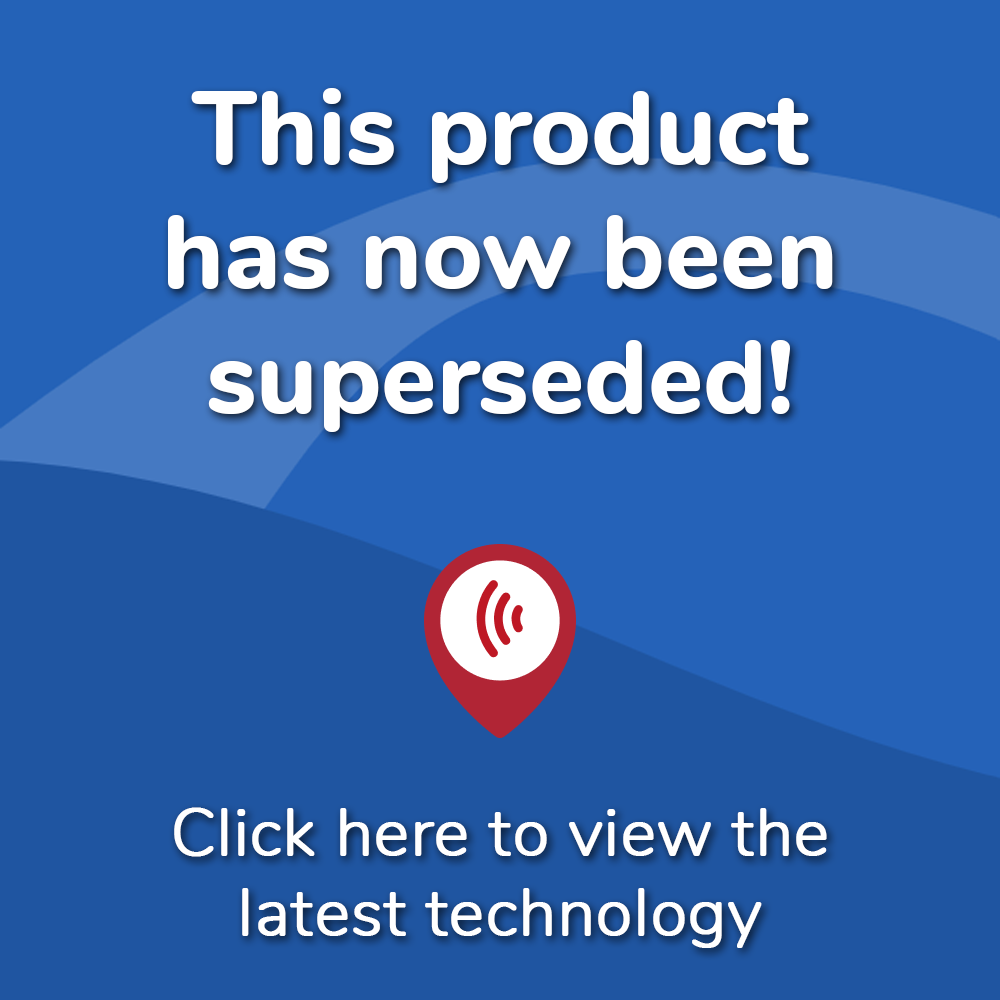WARNING DISCONTINUED Newer Phonak Models Available

What's included in our hearing aid prices?
Details & Features
Phonak Belong B90 Hearing Aids
| 2024 Update: The Phonak Belong B90 hearing aids have now been discontinued, view the latest Phonak hearing aids here
| September 2017 update: There is now a full range now available including the custom in-ear “Virto” models and the new B-Direct.
What is B-Direct?
The same as the regular Phonak Belong Audeo B90 only with additional wireless streaming capabilities. This is the first “made for any smartphone” hearing aid that can do fully wireless streaming without an extra device. It works with any smartphone that has Bluetooth. In addition, they have a new improved TV streamer box to go along with it.
The Phonak Audeo Belong 90 or B90 is the top of the range launched in September 2016. It supersedes the older January 2015 model, the Venture 90 or V90. So far the Belong aids are only available in the receiver in canal shape, the Audeo. The BTE, ITE and CIC versions will be called the Bolero B90, Virto B90 and Nano B90 respectively and we will let you know here as soon as they become available.
The Phonak Belong has a number of new features described below and there is a chart at the bottom of the page so that you can compare features between the different models of the aid, the B90, B70, B50 and B30. If there’s anything you don’t understand then give us a call, we’re not a call centre and almost always have an audiologist answering the phone.
They called it the “Phonak Belong platform” because, to quote Phonak “As the name suggests, we want clients to have hearing aids that allow them to feel at one with their environment, regardless of where they are.” They are talking here about their improved automatic functionality (called AutoSense OS) which is better able to smoothly adapt to your surroundings.
We would have preferred it if their marketing department had thought through the similarity in the names. This conversation has been happening frequently since this aid came out, an unforeseen complication I think, though not quite as bad as the Siemens Binax/Primax confusion. Some common scenarios:
“Can you tell me about the Phonak V90”
“Did you say B90 or V90?”
“What?!?”
Rechargeable version - The Audeo B90-R
Phonak Audéo B90-R is the first aid to contain a built-in lithium-ion rechargeable battery, though not for long as other manufacturers are hot on their heels with similar recharging systems coming out later in 2016. This aid has 24 hours worth of hearing from one full charge.
The lithium-ion battery provides 40% more power than previous generations of aids which is finally enough to make them useful. They will now last right through the day rather than only part of the day like rechargeable aids from the past have done. Additionally, they are faster charging and lithium-ion batteries last longer and won’t degrade even after years of charge cycles.
About four years until the battery will start to underperform is what has been predicted. Three hours charge will get you 24 hours of wear. 30 minutes charging will get you about 6 hours of wear time.
Improved automatic program - Auto sense OS
Understanding in noise
60% better speech understanding. They zoom in on single voices in a noisy environment – 60% improvement is compared to without hearing aids.
Hearing in car
37% reduction in listening effort in cars – compared to previous technology.
Hear quiet voices
10% improvement in understanding of soft speech with the Audeo B90.
How it works
It analyses sounds every 0.4 seconds and then blends the various pre-programmed settings to create over 200 variations of how the aids can sound, depending on exactly what type of environment you’re in. All done automatically, without manual adjustments being made.
Two ears are better than one – Binaural VoiceStream Technology
The noisier it is, the greater the challenge. AutoSense OS utilises “Binaural VoiceStream Technology” It streams all incoming sounds in real-time to both hearing aids, thereby tackling tricky listening situations by simulating what your brain does with sounds from both ears. This linking of the hearing aids brings you the benefit of hearing speech in both ears, especially in a noisier environment.
Want to know more about Phonak Belong B90 hearing aids?
Call us free on 0800 567 7621 to speak with one of our audiologists, who will be happy to help with any hearing healthcare enquiries.
**Please note, there will be an additional surcharge of £125 if we are pairing a single hearing aid with an existing aid bought from another company where we are taking over the aftercare responsibilities and looking after both hearing aids**
Paul Harrison is an audiology expert at Hearing Aid UK, with over 20 years of audiology experience and a member of the British Society of Hearing Aid Audiologists Council (BSHAA) between 2015 - 2020.
Our specialist service includes:
Do not spend hundreds of pounds without getting a second opinion from us.
Please call us on 0800 567 7621
 Not only are the prices great, but the service is fantastic! Many thanks to your team.
Not only are the prices great, but the service is fantastic! Many thanks to your team.What's included in our hearing aid prices?
FAQs
In general, any audiologist will always recommend to you the hearing aid model that best suits your needs. Here is a useful checklist to make sure that is the case.
- Audiologist's level of knowledge: The audiologist you have seen will hopefully have a wide knowledge of all available hearing aids; however, some will only be familiar with a small number of brands and, therefore, may not really be in a position to know which model is the best for you. It is OK to challenge their recommendation and ask them to justify why this particular brand is the one for you.
- Do research: Read about the hearing aid that was recommended. Does it seem like it will suit your lifestyle? Does it have more or fewer features than you need?
- Be aware of sales targets: Many high street retailers have specific tie-ins to a particular manufacturer/brand. The hearing aid they have suggested may still be the correct one for you, but do your research so that you know why they might have recommended it.
If you have significant hearing loss in both ears, you should be wearing two hearing aids. Here are the audiological reasons why:
Localisation: The brain decodes information from both ears and compares and contrasts them. By analysing the minuscule time delays as well as the difference in the loudness of each sound reaching the ears, the person is able to accurately locate a sound source.
Simply put, if you have better hearing on one side than the other, you can't accurately tell what direction sounds are coming from.
Less amplification is required: A phenomenon known as “binaural summation” means that the hearing aids can be set at a lower and more natural volume setting than if you wore only one hearing aid.
Head shadow effect: High frequencies, the part of your hearing that gives clarity and meaning to speech sounds, cannot bend around your head. Only low frequencies can. Therefore, if someone is talking on your unaided side, you are likely to hear that they are speaking, but be unable to tell what they have said.
Noise reduction: The brain has its own built-in noise reduction, which is only really effective when it is receiving information from both ears. If only one ear is aided, even with the best hearing aid in the world, it will be difficult for you to hear in background noise as your brain is trying to retain all of the sounds (including background noise) rather than filtering them out.
Sound quality: We are designed to hear in stereo. Only hearing from one side sounds a lot less natural to us.
Fancy some further reading on this topic? You can read about why two hearing aids are better than one in our article, hearing aids for Both Ears, here
For most people, the main benefit of a rechargeable hearing aid is simple convenience. We are used to plugging in our phones and other devices overnight for them to charge up. Here are some other pros and cons:
For anybody with poor dexterity or issues with their fingers, having a rechargeable aid makes a huge difference, as normal hearing aid batteries are quite small and some people find them fiddly to change.
One downside is that if you forget to charge your hearing aid, then it is a problem that can't be instantly fixed. For most, a 30-minute charge will get you at least two or three hours of hearing, but if you are the type of person who is likely to forget to plug them in regularly, then you're probably better off with standard batteries.
Rechargeable aids are also a little bit bigger and are only available in Behind-the-Ear models.
Finally, just like with a mobile phone, the amount of charge you get on day one is not going to be the same as you get a few years down the line. Be sure to ask what the policy is with the manufacturer's warranty when it comes to replacing the battery.
For most people, the answer is yes. But it's never that simple.
The majority of hearing problems affect the high frequencies a lot more than the low ones. Therefore, open fitting hearing aids sound a lot more natural and ones that block your ears up can make your own voice sound like you are talking with your head in a bucket. Therefore, in-ear aids tend to be less natural.
However, the true answer is we can't tell until we have had a look in your ears to assess the size of your ear canal, and until we have tested your hearing to see which frequencies are being affected.
People with wider ear canals tend to have more flexibility, also there are open fitting modular CIC hearing aids now that do not block your ears.
There is also the age-old rule to consider, that a hearing aid will not help you if it's sat in the drawer gathering dust. If the only hearing aid you would be happy wearing is one that people can't see, then that's what you should get.
Most people can adapt to any type of hearing aid, as long as they know what to expect. Have an honest conversation with your audiologist as to what your needs are.
Generally speaking, six or more. Unless it's none at all. The number of channels a hearing aid has is often a simplistic way an audiologist will use to explain why one hearing aid is better than another, but channels are complex, and it is really not that straightforward. Here are some reasons why:
Hearing aids amplify sounds of different frequencies by different amounts. Most people have lost more high frequencies than low, and therefore need more amplification in the high frequencies. The range of sounds you hear is split into frequency bands or channels, and the hearing aids are set to provide the right amount of hearing at each frequency level.
Less than six channels, and this cannot be done with much accuracy, so six is the magic number. However, a six-channel aid is typically very basic with few other features and is suitable only for hearing a single speaker in a quiet room. The number of channels is not what you should be looking at; it's more the rest of the technology that comes with them.
As a final note, different manufacturers have different approaches. One method is not necessarily better than any other. For example, some manufacturers have as many as 64 channels in their top aids. Most tend to have between 17 and 20. One manufacturer has no channels at all.
Manufacturer's warranties typically last between 2-5 years, depending on the brand and model, and cover defects in materials and workmanship. This includes repairs for component failures, electronic malfunctions, and manufacturing defects, but excludes damage from misuse, accidents, or normal wear. Most manufacturers also include loss and damage insurance for the first year.
We handle all warranty claims on your behalf, liaising with manufacturers and ensuring you get replacement devices quickly when needed. This comprehensive warranty coverage, combined with our lifetime aftercare, gives you complete peace of mind.
Our hearing tests are completely free, whether at our clinics or in your home. Unlike other providers who charge £30-£100 for home visits, we believe hearing healthcare should be accessible without financial barriers. Our comprehensive assessments include examination by a registered audiologist, audiogram results, and personalised recommendations.
All testing, future adjustments, and ongoing support are included at no extra cost. While NHS tests are also free, typical 6-week waiting periods often lead people to seek immediate private testing. We provide prompt, professional assessments that fit your schedule and budget.
Yes, we offer completely free home visits throughout the UK, and this service is included in our prices with no additional charges. Home visits are particularly valuable for people with mobility issues, busy schedules, or those who simply prefer the comfort and convenience of their own environment.
Our audiologists can conduct full hearing tests, fit hearing aids, and provide ongoing support in your home. This service sets us apart from many providers who either don't offer home visits or charge extra for them.
We can offer prices up to 40% lower than high street retailers because of our business model. As a network of 200+ independent audiologists, we don't have the massive overheads of large retail chains - no expensive high street premises, no sales targets pushing audiologists to sell the most expensive options, and no costly marketing campaigns.
However, we maintain the same buying power as the big chains because we purchase on behalf of our entire nationwide network. This means you get access to the same premium hearing aids with professional service, but at genuinely competitive prices.
We offer a comprehensive 60-day money-back guarantee, which gives you twice the industry standard time to properly assess whether your hearing aids are right for you. This extended period recognises that adjusting to hearing aids takes time, and your brain needs several weeks to adapt to the amplified sounds.
Unlike many providers who offer just 30 days, we believe 60 days gives you the confidence to test your hearing aids in all the situations that matter to you - from quiet conversations at home to busy restaurants and outdoor activities.
Other Models
Ask the Experts
6 Morton Lane
Walkwood
Redditch
Worcestershire
B97 5QA
Latest Launch
When we refer to a product as 'Latest Launch', we mean it is the latest to be released on the market.
New
When we refer to a product as 'New', we mean that the product is the newest hearing aid model on the market.
When we refer to a product as 'Superseded', we mean that there is a newer range available which replaces and improves on this product.
Older Model
When we refer to a product as an 'Older Model', we mean that it is has been superseded by at least two more recent hearing aid ranges.



